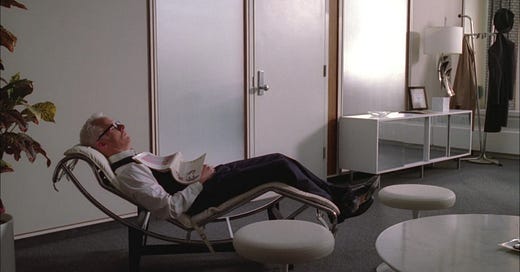In agency land, winning new business is one thing, and keeping business is quite another. Sadly, there's no secret sauce to success. As Roger Sterling says in Mad Men: "the day you sign a client is the day you start losing them".
But agencies can use some in-built human psychology to their advantage when thinking about client satisfaction - turns out humans are hardwired to believe that things can always be better.
That finding comes from one of the most entertaining academic papers I've read in a long time (and yes, I sometimes struggle through academic papers that are free to access). It's entertaining because it's published by
on Substack and ignores all the modern standards associated with academia.Writer Adam Mastroianni wanted to "figure out why some things seem good and other things seem bad." He figured it was all based on comparison and the mental benchmarks we allocate in our heads and that we instinctively imagine some things could be better (but are bad right now) while others are just good.
Across a whole range of different studies, the data came back with one result: "When people imagine how things could be different, they almost always imagine how things could be better."
We're not hardwired to rest on our laurels and accept things the way they are - we're hardwired to look for improvements, no matter the situation. There are many other potential avenues to explore here, such as does this explain why humans enjoy capitalism, but that's for another day. The point for us is that we can apply this in-built dynamic to our agency-client relationships.
Your agency-client relationship can always be better. No matter how good your last client satisfaction or NPS score was, there's always room for improvement.
And that's not a bad thing. It doesn't mean you're at risk of walking away from each other or triggering a repitch. It's a healthy exercise for you to ask yourselves and your clients, "what could we do differently?" Which implicitly means: what could we all be doing better?
The trick is to give yourselves some headspace. Step away from the day-to-day; think about those things that "have always been like that"; and identify ways to improve them. It's healthy and necessary in any relationship, but particularly one that relies on both parties being smooth and high-functioning.
The other reason these check-in points are so important is that the longer your relationship with your client lasts, the more you risk being burdened by the curse of knowledge.
It's a paradox that can develop with long-standing clients - the more you learn about the business, the more you can limit your thinking.
You're more likely to think, "we could never do that" when discussing a new direction or approach.
You know the internal stakeholders, the roadblocks, the points of institutional inertia to be avoided.
It's one of the most difficult challenges to overcome, and it's why repitches are the most brutal assignments imaginable. As the incumbent, you know what works - and feel you have a good handle on what doesn't.
It can mean you stick with the tried and tested and focus on de-risked effectiveness (to coin a phrase from the excellent
and his ).Winning a repitch or keeping a client excited and engaged requires doing something different, pushing beyond the boundaries of the tried and tested, and escaping the constraints of the category.
It means overcoming the institutional knowledge that makes us think "we can't do that" in favour of a "we can if..." attitude. This reframing again comes from the A to Z of planning, with Matt taking it from Adam Morgan's A Beautiful Constraint. The logic is simple - change the statement to “diffuse the disbelievers and give your best thoughts the best chance of making it out into the real world."
From: "We can't spend money on LinkedIn advertising; we're the corporate affairs team - that's marketing's job".
To: We can run a LinkedIn campaign if we create an integrated model encouraging other teams, including marketing, to get involved.
That's a relatively simple example, but it gives you a sense of the mental model required to overcome the burden of institutional knowledge.
Combined with the human mind's natural tendency to imagine better things when asked what to change, there's plenty of opportunity to continue to delight clients and push the day you lose a client that little bit further into the future.




